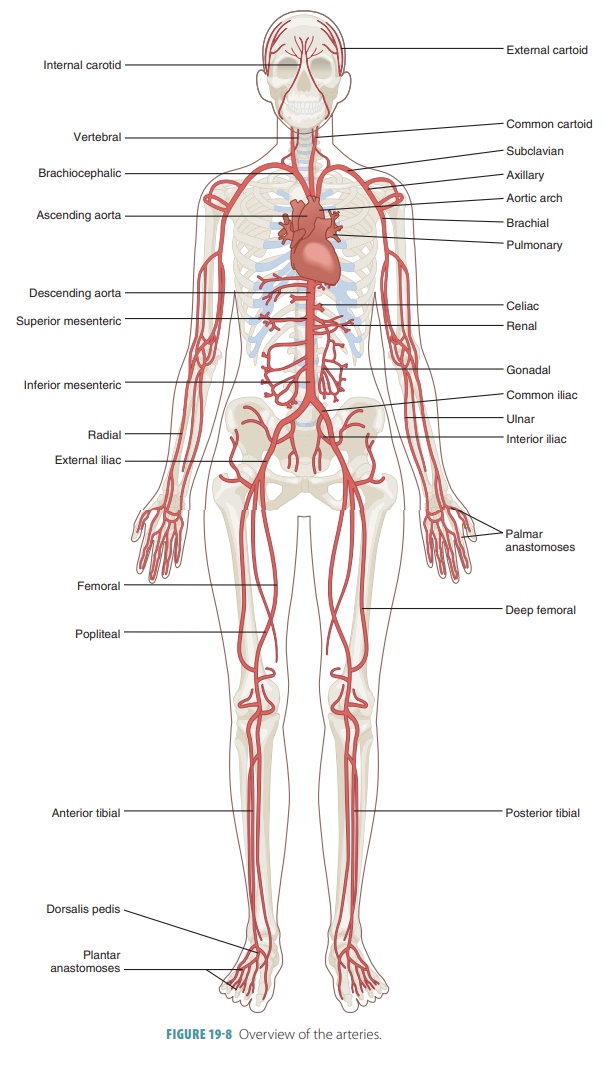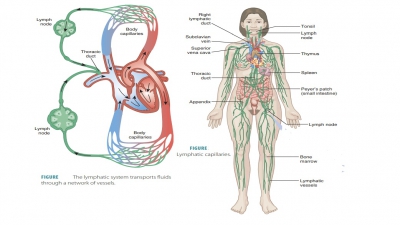Blood Vessel Pathways and Divisions
| Home | | Anatomy and Physiology | | Anatomy and Physiology Health Education (APHE) |Chapter: Anatomy and Physiology for Health Professionals: Vascular System
The blood vessel pathways make up the vascularsystem, which is divided into the systemic andpulmonary circulation systems.
Blood
Vessel Pathways and Divisions
The blood vessel pathways make up the vascularsystem, which is divided into the systemic andpulmonary circulation systems. Each of these two systems has its own unique arteries, capillaries, and veins. The systemic circulation is much larger than the pulmonary circulation and receives blood from the heart via just one systemic artery: the aorta (FIGURE 19-8). This differs from the pulmonary cir-culation, in which the heart receives returning blood via two terminal veins: the superior and inferior vena cava.

The only exception is the
blood coming from the myocardium that is collected by the cardiac veins. It
reenters the right atrium through the coro-nary sinus. The three major
differences between sys-temic blood vessels are as follows:
■■ The arteries are deep, whereas the veins are
either deep or superficial: The deep veins run
similarly to the course of the arteries. Names of both the systemic arteries
and the systemic deep veins are similar. Because there are superficial systemic
veins but no such arteries, their names do not correspond to those of any
arteries.
■■ Veins have more interconnections than
arteries: Therefore, many veins are made up by two
vessels with similar names and are more difficult to follow than arteries.
■■ Unique drainage systems exist in the brain
and digestive system: Blood draining from the brain goes into the
large dural venous sinuses instead of typical veins. Blood draining from the
digestive system enters the hepatic portal system, moving through the liver,
and then reentering the general systemic circulation.
Systemic
Arteries
Systemic arteries begin from the aorta and its branches.
Figure 19-8 illustrates an overview of the systemic arterial system, and
localizes the major systemic arteries.
Related Topics

